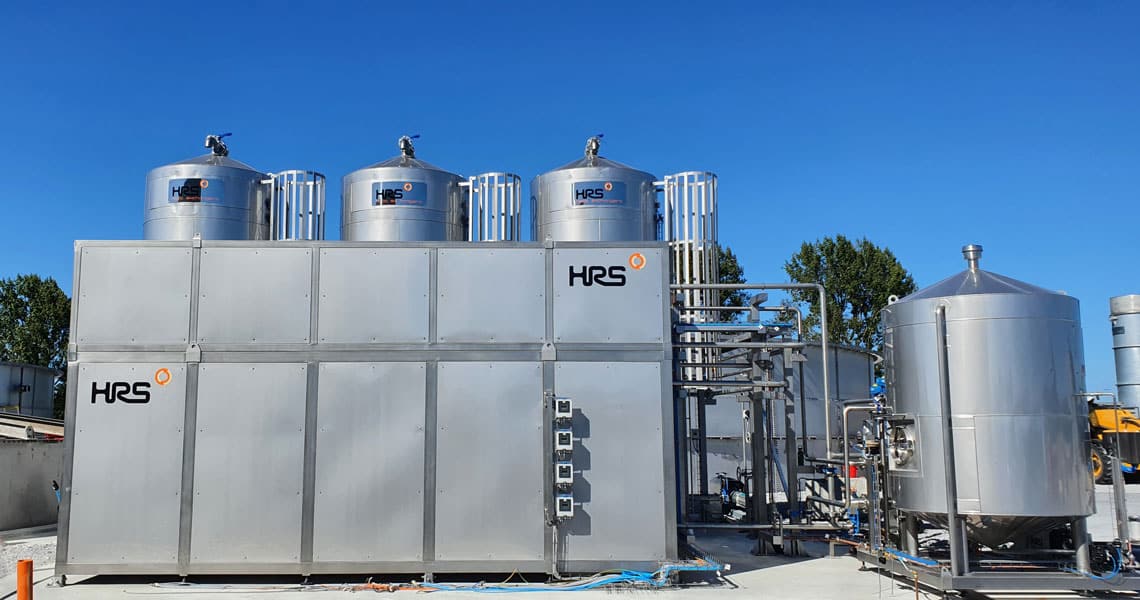Pasteurisation Plays Crucial Role in New Zealand AD Plant
The Client
Ecogas has built New Zealand’s first full scale anaerobic digestion (AD) energy plant powered by food waste at Reporoa, in the middle of the North Island. The plant will process around 75,000 tonnes of organic waste each year from council kerbside collections, commercial and industrial food producers – eliminating more than 11,000 tonnes of CO2 a year and helping towards New Zealand’s target of being net carbon zero by 2050.
The plant, which was officially opened in October 2022, produces biogas and digestate biofertiliser. From October 2023, the biogas will be upgraded into biomethane, which will then be injected into New Zealand’s gas grid, and the carbon dioxide will be supplied to a nearby tomato greenhouse where it will help crop growth.

The Challenge
The co-mingled food waste used as feedstock at Reporoa has the potential to contain organisms which have the potential to impact human, animal, or plant health. To overcome this, the feedstock or digestate (the left over liquid and solid residue which is an excellent biofertiliser) needs to be pasteurised to render such pathogens inert, along with other undesirable elements such as weed seeds. This means that the valuable and sustainable biofertiliser can be safely used by farmers and growers.
Alzbeta Bouskova, General Manager at Ecogas explains, “Ecogas adopted UK-based PAS110 digestate standards as our primary design and operation principle to ensure that the biofertiliser produced from the Reporoa facility is of the highest quality, safety and value for the potential users. Pasteurisation is a key step in the PAS110 standard for source-separate food waste for destroying pathogens and viruses potentially present in this type of waste.”
Traditional pasteurisation systems heat the digestate in a tank using a heating jacket – a bit like waiting for a giant kettle to boil – and then dump the heat after it has served its original purpose, which is extremely wasteful in terms of energy.
The Solution
In contrast, the HRS Digestate Pasteurisation System (DPS) employs energy recovery and is typically two to three times more efficient. By transferring energy from the hotter (pasteurised) sludge to the colder (unpasteurised) sludge, energy consumption is reduced, and the need for additional heat sources is removed.
The HRS DPS utilises ‘waste heat’ from the site based Combined Heat and Power Plants (CHP) to heat digestate to >70°C and hold it for one hour at this temperature, before cooling. This is done with the HRS DTI Series heat exchangers, which are designed in such a way to recover up to 70% of the heat energy required for the process. The tube which carries the digestate through the system’s heat exchanger features a unique corrugated design; unlike the smooth or dimpled tubes used in alternative exchangers. This boosts heat transfer by creating extra turbulence and helps reduce fouling, resulting in less downtime and maintenance, and increasing the system’s lifespan.
The fully automated system provides an auditable kill-step for efficient and effective reduction of pathogens such as Salmonella, Staphylococcus, E. coli etc. Once treated in this way, the digestate produced is safe biofertiliser product, turning what would otherwise be a waste stream into a value-added organic substitute to mineral fertilisers. Not only does the DPS heat-treat the digestate, but it also helps to remove odours while maintaining the quality of the resulting biofertiliser.
The DPS was delivered to site and installed in February 2022. HRS Managing Director for Oceania Chris Little comments, “It is fantastic to have extended our global footprint for HRS Digestate Pasteurisation Solutions to New Zealand, particularly as Ecogas Reporoa is such a significant project in the development of NZ’s Bioenergy Sector.”